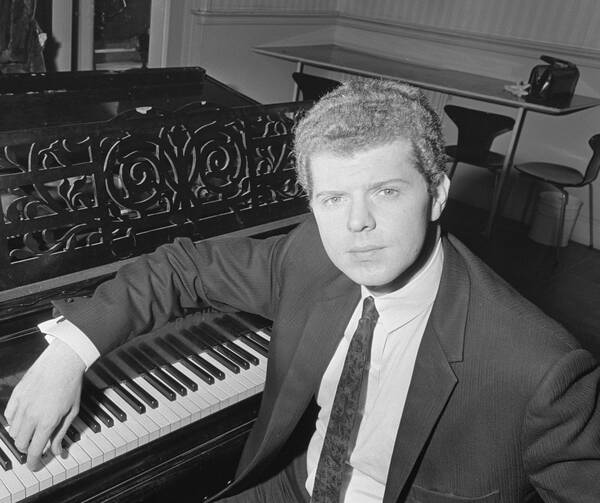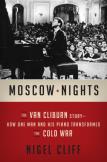The music of Van Cliburn was key to a Cold War thaw
With the 25th anniversary of the fall of the Soviet Union approaching and the Cold War fading into history, Nigel Cliff’s enjoyable book shows how that rivalry was all-encompassing, even reaching to the arts. In 1958, about a half year after the U.S.S.R.’s successful launching of Sputnik, the Soviets established the International Tchaikovsky Competition to tout the superiority of their pianists and violinists. Given the international relations of the time as well as the nature of Soviet politics, everyone expected a Soviet to win, and one was victorious in the violin competition. The piano contest also seemed slated for the desired outcome because many of the compulsory pieces were part of the standard Soviet repertoire, Soviet and East Bloc judges dominated, and Soviet expressive preferences were different from those in other parts of the world. Certainly no one expected the American pianist Van Cliburn—a 23-year-old from Texas who had been a stand-out at the Juilliard School but was having some challenges in the early years of his professional career—to best the Soviets at their own somewhat fixed game, and no one could have predicted that his victory would pave the way then and later for bridge-building between societies and even superpower leaders. But those expectations missed ways in which Cliburn could appeal to Russian national pride and sensibilities. As Cliff explains in his account of Soviet media coverage of Cliburn during the competition:
increasingly, they downplayed his Americanness, reminding readers and listeners that his teacher, albeit an émigré, was Russian and that his mother’s teacher had been Russian, too. To their great satisfaction, they discovered that Van was really a great Russian pianist after all. From there it was only a step to anointing him their own Soviet pianist.
At the height of the Cold War, awarding the top prize to an American was remarkable. It required political permission at the highest levels, and the Communist Party leader Nikita Khrushchev readily embraced Cliburn’s talent and the potential for exploiting the young man’s victory as a way to underline fairness in the U.S.S.R and a means for promoting Khrushchev’s goals of de-Stalinization.
In Cliff’s telling, Van Cliburn became a darling of the Soviets, a person who never fully understood the intensity and pervasiveness of the Cold War. His attempts to reach out to citizens and Communist leaders provoked the Central Intelligence Agency, the Federal Bureau of Investigation and even some U.S. presidents. But while conservative American officials worried about his outreach to their enemy and his talk about the universal language of music, they were happy to have Cliburn as a symbol of achievement, as well as a bulwark against cultural change coming from the likes of Elvis, the Beatles and others.
What is remarkable about Cliburn’s story and Cliff’s account of it are the ways in which his career intersected with the ups and downs of the superpower rivalry. For those not conversant with Soviet politics or Cold War history, Cliff does a good job explaining Soviet leadership conflicts, constructing his narrative with the help of archival research and respected secondary sources. He also digs into Cliburn’s past by not only consulting major biographies but also tracking down records at Juilliard and interviewing competitors. At times, the work reads a bit like a highbrow “Forrest Gump” situated at the center of the Cold War, with Cliburn showing up at many major occasions of superpower competition. Remarkably, though, Cliburn was there at very important times, for instance when Cliburn’s playing helped ease tensions at a December 1987 summit between two leaders with very different personalities and ideologies, Mikhail Gorbachev and Ronald Reagan, as the U.S.-Soviet rivalry was waning.
[Van Cliburn's] story reminds us that mutual respect and commitment to fundamental ... values are essential for creating a relationship that will benefit Americans and Russians alike.
In many ways, Cliburn slipped quietly away like the Cold War. As the author himself notes, Cliff was inspired to write about the pianist after reading his obituary. Some of Cliff’s final words, written for the book’s “Coda,” are especially appropriate today as we try to understand that conflictual period, Cliburn’s role in it and the lessons the pianist’s victory gives for contemporary relations with Russia:
Van Cliburn’s secret was that he lovingly played back to Russia the passionate, soul-searching intensity that was its culture’s greatest contribution to the world, while embodying the freedom that most Americans took for granted and the Soviets sorely lacked. It was a devastating combination, and so simple that it was almost certainly unrepeatable.
Relations between the United States and Russia today are at their lowest point since the Cold War. While there is no Van Cliburn to be a bridge, his story reminds us that mutual respect as well as commitment to fundamental American values are essential for creating a relationship that will benefit Americans and Russians alike.











